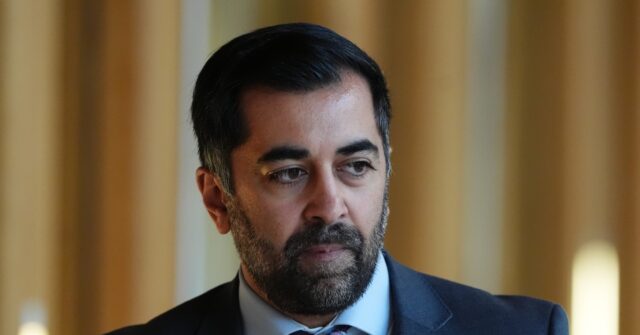Humza Yousaf, the former Scottish First Minister, recently announced his decision to step down from frontline politics prior to the next election, marking a significant turn in a career that has been heavily influenced by identity politics and controversies surrounding civil liberties. His tenure began following the resignation of Nicola Sturgeon in 2023, when he ascended to lead the Scottish National Party (SNP), becoming the first Muslim head of a Western government. However, his administration proved short-lived, as public support waned and he was ousted from power by May of the same year, prompting him to formally declare his impending departure from politics after 15 years.
Reflecting on his journey, Yousaf emphasized the importance of representation, noting that as a child of immigrants, he never envisioned leading his country. He expressed hope that his role as the first First Minister of Colour would inspire young individuals from diverse backgrounds to pursue public service. His resignation statement echoed sentiments from a speech he delivered in 2020, which drew attention for its critical stance on the perceived lack of racial diversity within Scottish political and legal institutions. He highlighted the predominance of white individuals in key positions of power, indicating his belief that such a status quo was inadequate for a nation characterized by its own demographic diversity.
Despite his focus on identity politics, Yousaf opted to lead the SNP following Sturgeon’s controversial moments concerning transgender rights and female prisoner policies. Although his time as First Minister was cut short, Yousaf’s influence on Scottish governance is likely to resonate in the years ahead. His tenure witnessed the implementation of one of the most stringent censorship laws in the Western world through the Hate Crime and Public Order (Scotland) Act, which prescribes severe penalties for actions categorized as “stirring up hatred” against defined minority groups. This controversial legislation raised concerns around freedom of expression, drawing criticism from those worried about its broad and vaguely defined terms.
Ironically, after the enactment of the Hate Crime law, many individuals lodged complaints against Yousaf for his prior remarks regarding the racial composition of Scotland’s leadership. The volume of these complaints reportedly compelled Police Scotland to issue guidance to officers clarifying how Yousaf’s comments fell within the law’s ambiguous guidelines. Recognizing the complexity and potential repercussions of such a law on public discourse, critics have continued to challenge the extent of its reach and its implications for civil liberties.
Looking ahead, it remains uncertain what path Yousaf may embark upon after finishing his term as a Member of the Scottish Parliament in 2026. Prior to his announcement, he had indicated a potential move away from Scotland due to an increase in reported “Islamophobia” in the UK. This statement underscores the continuing tension surrounding identity, representation, and civil rights in Scotland and beyond, reflecting the critical discussions that will likely persist in the public sphere beyond his departure from politics. Yousaf’s legacy, defined by both his groundbreaking position and the accompanying controversies, will undoubtedly provoke ongoing dialogue regarding the intersection of race, politics, and governance in contemporary society.

